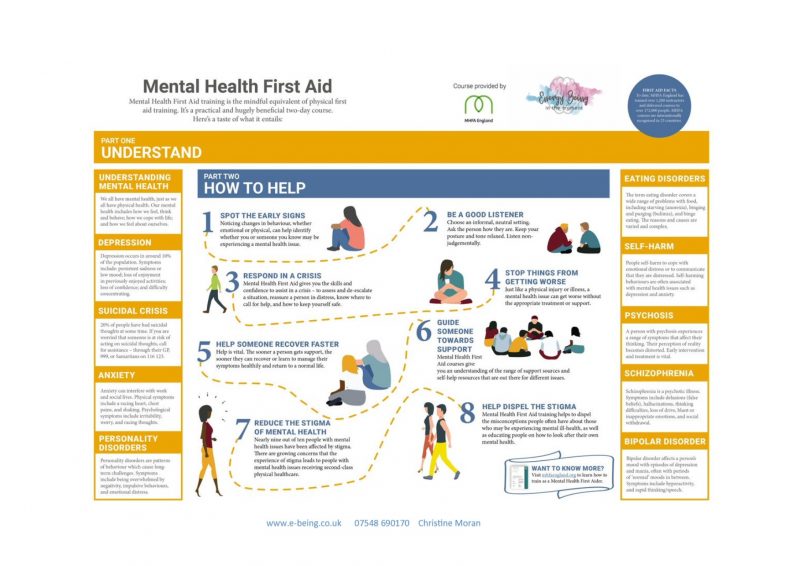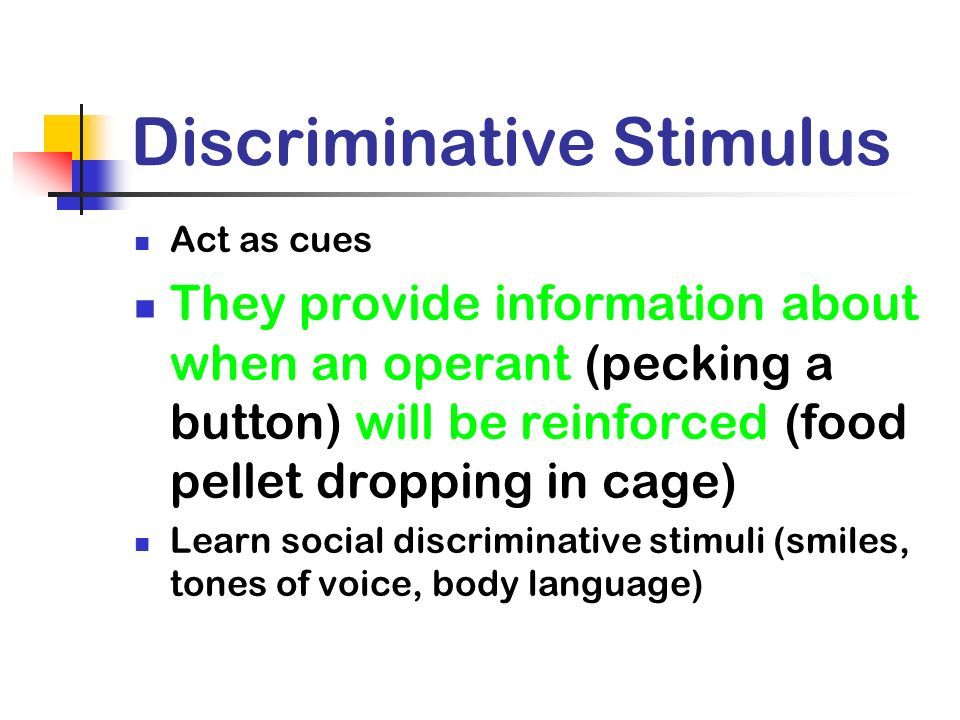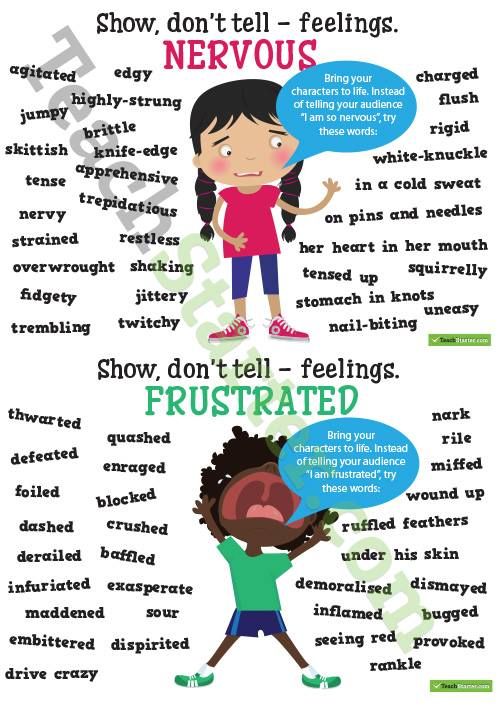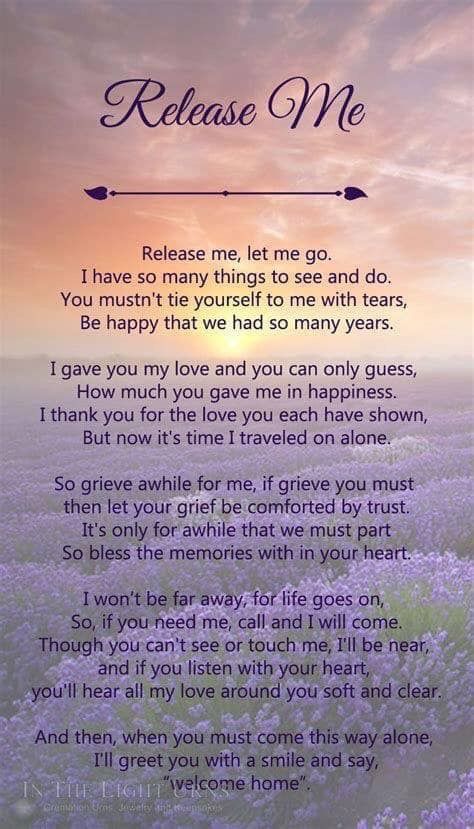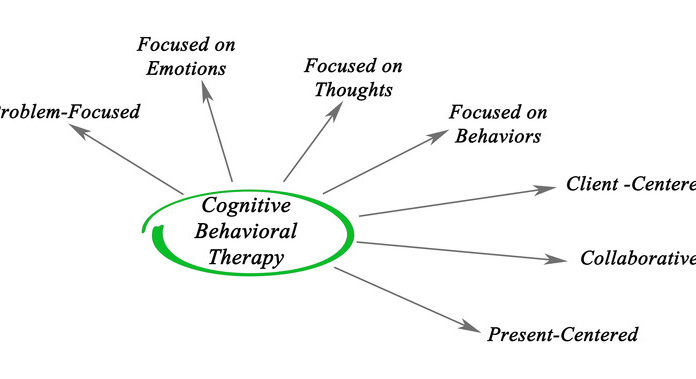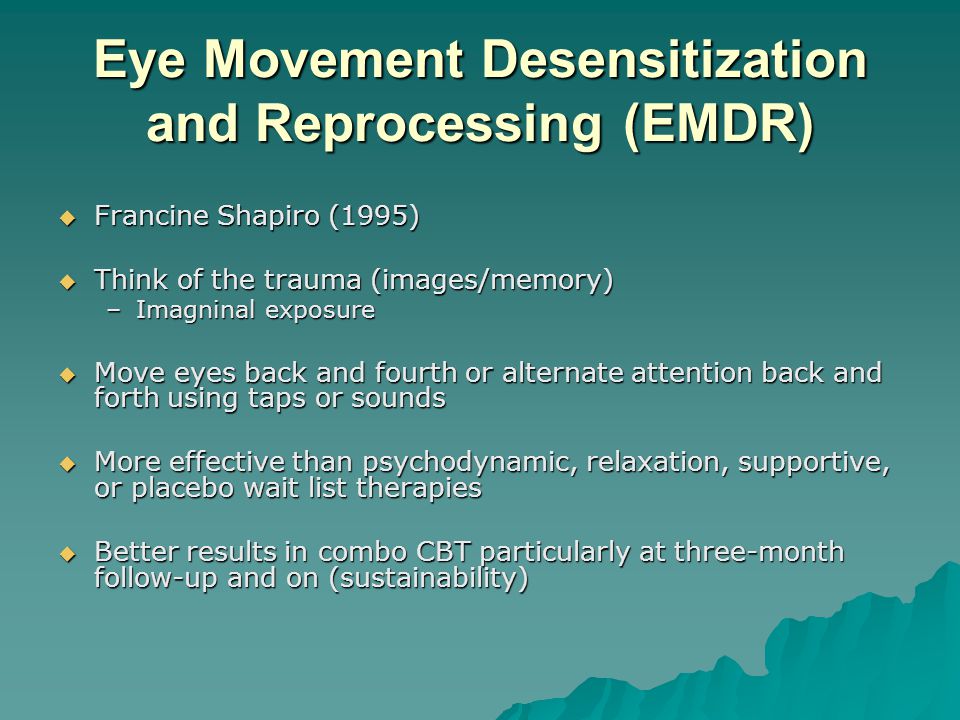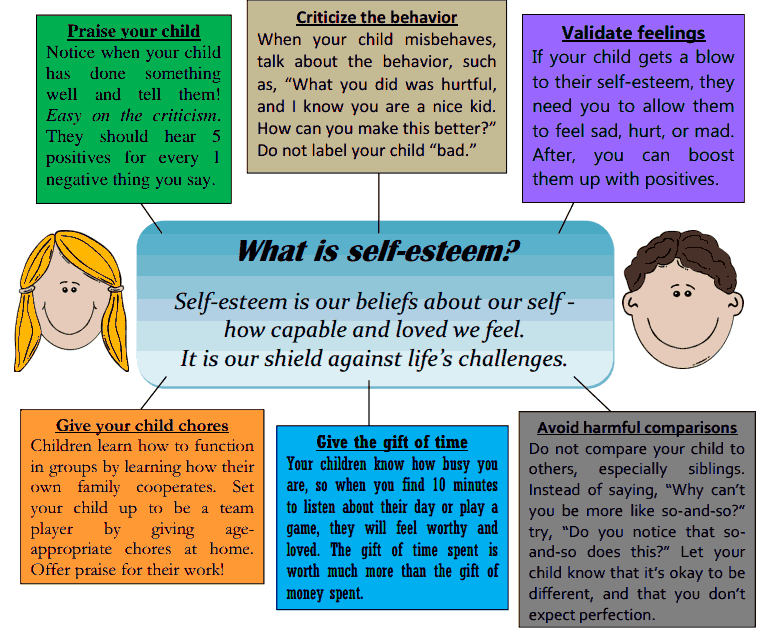How to worry about yourself
Life Advice: Why It's Best To Worry About Yourself & Not the Whole World
There’s just so much seemingly wrong with the world. Taking timeto worry about yourself can easily take a back seat when there is so much that needs to be fixed. People need helping, relationships need mending, wrongs need righting. It isn’t hard for worry to generalize beyond ourselves to so much more.
And there is certainly much to worry about these days. There seems not enough compassion and generosity, despite it mitigating stress, being good for our health and happiness, and making the world a better place.
But too much focus on others can pull you out of balance, too far afield from your own needs. Too much worry about the people around us can blur the boundaries that define where our responsibilities begin, and end.
Our lives are oftenoverwhelming. We have so much to do and often feel that we don’t have enough time to do it all. So, we worry.
We worry about our children, our spouses, our parents, our work, our home, our pets, our friends, our community, the environment, our government, our nation, our world…
With all this worry about so many different things, it can be easy to forgetto worry about yourself – sometimes the very person who most deserves our attention.
Sometimes it’s far easier to slip into the distraction of fixing other people’s problems (or at least thinking you are) than focusingon your own.
After all, it feels so much easier to see what others can’t see about themselves than to stay focused on yourself and what’s ahead of you.
And then there are the people who have more than you, get things they don’t deserve, and seemingly get away with unthinkable things. Science confirms we are powerfully oriented toward a sense of equity; fairness is as neurologically rewarding as money.
Injustice can generate legitimate feelings of conflict. Often without any outlet for expression, such feelings can fester and escalate, leaving us to decide how much time and energy we should devote to worrying and sharing negative opinions about them.
If you are wondering how to worry about yourself and not others — especially when you are, at your core, a caring, compassionate, generous person — ask yourself:
- Is happiness one of my goals in life?
- Who is responsible for my happiness?
- Is my worry about others taking away from my own life?
- Am I angry or jealous?
- Am I afraid of facing my own worries?
You have only a finite amount of energy. By worrying about others, you make their problems yours, adding to the weight of drama and overwhelm that delay (even steal) your happiness.
By worrying about others, you make their problems yours, adding to the weight of drama and overwhelm that delay (even steal) your happiness.
The distraction pulls you away from your own personal growth because your focus is outside yourself. And happiness — forgive the cliché — really is an inside job. We can only afford so much to worry about. When you spend too much worry on others, you rob yourself of what you need for your own growth.
So how can you redirect your focus from others to yourself without sacrificing your intuitive sensitivity and connection to those you love and care about?
1. Choose to stop self-sabotaging.Edward A. Selby describes avoidance as “self-sabotage”– a tactic that feels like safety but actually causes damage – to your personal environment, your desires, and your self-esteem.
If you find yourself focussing on others yet feeling more unsettled, you may be avoiding something in yourself that’s more important. As scary as it can be to face your fears, avoiding them could be getting in the way of your own happiness.
As scary as it can be to face your fears, avoiding them could be getting in the way of your own happiness.
This goes back to boundaries. “Where do I end and you begin?” This is perhaps the most important question to ask yourself when strategizing how to worry about yourself and not others. It’s a clarifying question that forces you to set parameters around your choices and actions, and inevitably directs your focus inward.
Worry and anxiety are best channeled into choices that are within our control. Natural motivators for action, worry can fuel us into taking needed action that reduces feelings of worry.
3. Put your own oxygen mask on first.You have to change yourself before you can change the world (unless, of course, there is nothing left in you to change). Taking care of yourself isn’t always a picnic: self-care takes discipline, and guts.
4. Cultivate happiness for others.
If you are prone to jealousy or anger over apparent inequalities or injustices, make the decision to find happiness for others.
Can’t do it without gritting your teeth? Ask yourself how you would feel to be on the receiving end of something great, and use that feeling as a starting place to cultivate happiness for someone else.
5. Ask, “What does this have to do with me?”If you are giving your energy to something that doesn’t directly affect you, you could be wasting your precious energy. You will feel better resisting situations that truly don’t concern you.
In those situations where something does affect you, look for how your outward worry could reflect more of an inner worry. The old adage of hating in others what we hate in ourselves rings often true when it comes to our interpersonal irritations.
Our worries about others can often be a powerful signal for the worries we have about ourselves, even if we are loath to face up to them. For couples in long-term relationships, managing the effects of projection are a key way to maintain lasting, healthy love.
For couples in long-term relationships, managing the effects of projection are a key way to maintain lasting, healthy love.
Do you want to be happy or mad? According to science, when it comes to labeling your emotions, you get to make these very choices. You get to decide if you are ok with something, or if you aren’t.
You have a lot more control over how you feel than you may think you do, and where and how you focus your thoughts makes a big difference in how you feel. Irked by someone else’s lack of consideration, you get to decide where you put your focus, and to a large extent, how you decide to feel. Preoccupation with what others have or receive can rob you of your happiness.
7. Base your decisions on how you want to feel, rather than others’ expectations.Being concerned about what others think, expect, or want often has more to do with your insecurity than your true desires.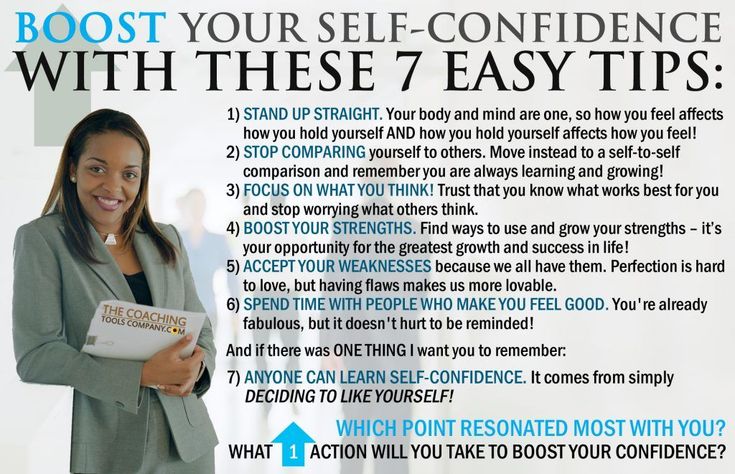 Since in the long run you are the only one looking out for you, aim make decisions with your long-term happiness in mind.
Since in the long run you are the only one looking out for you, aim make decisions with your long-term happiness in mind.
Aim to cultivate a sense of empathy for your future self by imagining how you want to feel and doing what you need to do to get there.
8. Develop a checklist to re-focus your attention.When we are tired and worrying about someone or something other than ourselves is when we need to be the most careful and gentle with ourselves. The temptation to be negative is often strongest under worry’s influence.
This is when a cheat sheet of sorts can be useful.
When we are too tired to avoid our own mental traps, it can help to have something to stand in for our fatigued decision-making and lapsed self-control.
Digital reminders of cognitive reframing, keeping schedules that are inflexible, committing to “nonnegotiables” of self-care, even encouraging regular “moments to notice progress” can all help you to worry about yourself, even if you are worried about someone or something else.
The big three of self-care are exercise, sleep, and nutrition. Each of these physical needs have been repeatedly linked to cognitive control as well as emotional regulation, and they are especially important in turning your awareness to your emotional signals instead of worrying about others.
Worrying about yourself is a big job, and no one else can effectively do it for you. Of course we care about others and worry for and with them. But in the end, our worry can’t really solve their problems either.
Knowing how to worry about yourself and not others is not aboutselfishness. It’s about self-fulness. It’s about observing the rules of self-containment, taking responsibility for yourself, and working to solve your own problems, while knowing how to be happy for others’ successes. Growing yourself cultivates strength and resilience, and inspires others to do the same.
Looking for more help managing anxiety? Check out my online interactive Hack Your Anxiety Accelerator based on my bestselling book, Hack Your Anxiety. Using exercises and simple explanations, this 6 module course will furnish you with the tools you need to fast-track taking control of anxiety right now. Offered at a huge discount for a limited time, claim your spot here.
Using exercises and simple explanations, this 6 module course will furnish you with the tools you need to fast-track taking control of anxiety right now. Offered at a huge discount for a limited time, claim your spot here.
Photo credit: Photo by Fares Hamouche on Unsplash
Doing YOUR Work: How To Worry About Yourself And Not Others
When you deal with anxiety, your closest relationships can be both wonderful and frustrating. This duality can cause you to wonder, at times, if all the wonderful is worth the frustration (and additional anxiety). However, when you learn how to worry about yourself and not others, you’ll come to view these frustrations as powerful teaching moments.
Yet this is no small feat. It is always easier to focus on someone else’s behaviors and actions than on your own – especially when you’re feeling overwhelmed by your own internal conflicts.
And just what are you supposed to do when those closest to you seem to keep pressing your buttons without apparent concern for how much pain they’re causing you? Obviously, it’s their behavior that needs to be corrected – not yours.
But what if their behavior triggers something in you that bears examination?
The fact is we all have the most trouble with someone else’s behaviors and actions when they remind us of the behaviors and actions we dislike the most about ourselves. This is called projection, and it can be more powerful than we may think.
The power of projection
One of the most cunning aspects of projection is that we are rarely aware of doing it. We do it unconsciously, by definition. This makes it virtually impossible to do anything about it – unless you learn to look for the sign that you are projecting.
But that doesn’t mean it’s impossible. Identifying signs of projection is the first step of learning how to worry about yourself and not others.
Think about any one of your important relationships. It could be the relationship with your spouse, parent, roommate, or work colleague. What are the basic things about this person that annoy you to no end?
Maybe this person is a neat-freak or tragically disorganized.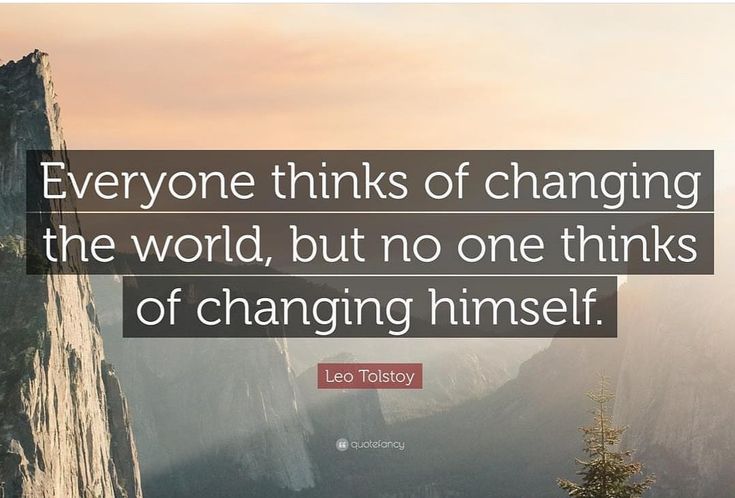 Maybe she is controlling. Maybe he doesn’t take the time to listen carefully to what you have to say before stating his opinion of the matter.
Maybe she is controlling. Maybe he doesn’t take the time to listen carefully to what you have to say before stating his opinion of the matter.
It does not matter what the things are that irritate you. What does matter is that you bring awareness to what these things are.
According to research by Roy Baumeister and his colleagues, whatever it is that you find to be so unpleasant about this person with whom you are so close, chances are good that this behavior or action is something you’re trying to suppress or ignore about yourself.
So, instead of worrying about how the people in your life should change, when you become aware of your projection you have the opportunity to begin understanding and coming to terms with your own issues. And, learn how to worry about yourself and not others.
It’s because your loved ones can be so irritating that they can become your best teachers. They allow you to become more self-aware and accept anxiety’s nudge to take control of what you can – yourself.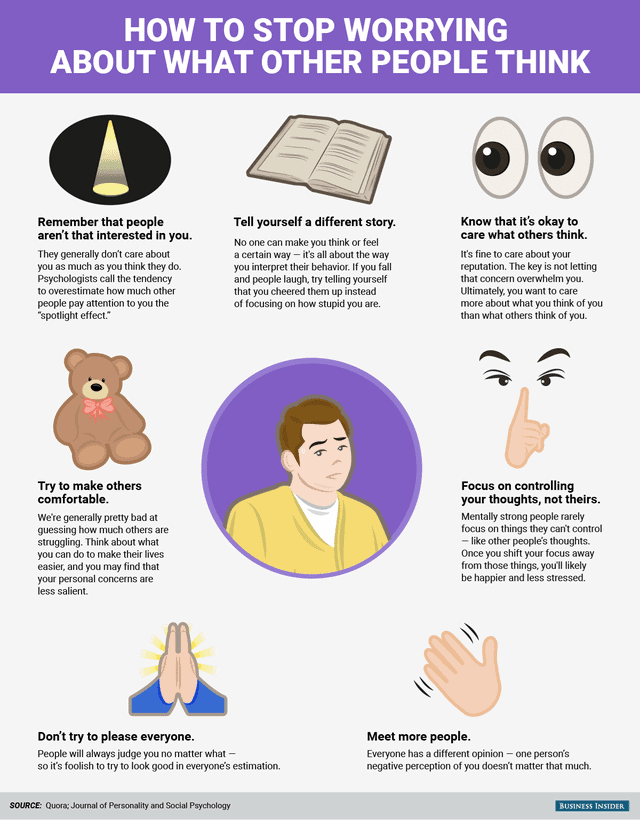
The immediate change is really about a gentle shift in focus and a decision to look inward.
When you become aware that you are projecting by worrying about how others should change, pause. This moment isn’t for you to correct them; it’s for you to learn about you.
When you find yourself worrying about how the people you care about the most should change, gently ask yourself where and how you could be projecting.
Ask yourself, “What can I do about my reactions and behavior?” In what way does this person’s behavior remind me of something I wrestle with in myself?
Becoming aware of your projection gives you the opportunity to begin understanding where your outer battles could be inner ones. This awareness in turn delivers you control, and teaches you how to worry about yourself and not others.
With practice, you will not only understand your own issues better, but you will be able to catch yourself before you project onto others.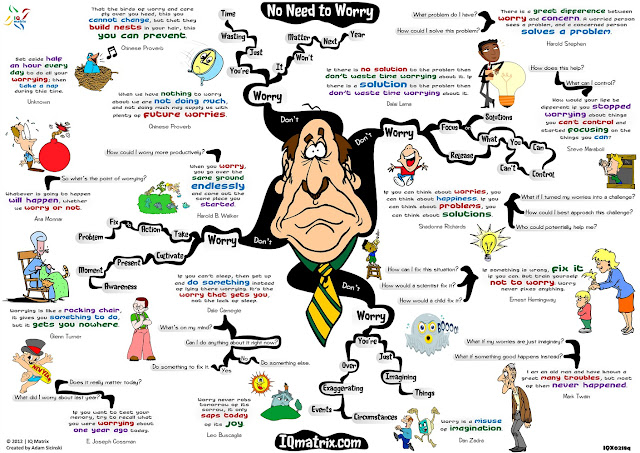 This is how you will learn to use this worry constructively, and practice this powerful relationship tool of worrying about yourself and not others.
This is how you will learn to use this worry constructively, and practice this powerful relationship tool of worrying about yourself and not others.
For more help with managing relationship anxiety, check out my new book, Hack Your Anxiety, register for my free mini-ecourse by signing up for book bonuses here, or check-out my anxiety and relationships blogs.
How to stop patronizing others and start thinking about yourself?
My first professional encounter with co-addicts was when I was working as a counselor for a network of treatment facilities and organizing support groups for the wives of alcoholics and drug addicts who participated in the program.
In my group, I saw people who considered themselves responsible for the whole world, but refused to take responsibility for leading and living their own lives. I saw people who constantly gave, but did not know how to receive.
I saw people who were hostile: they felt such deep hurt and pain that hostility was their only defense against being crushed again. They were so angry because anyone who put up with what they put up with would be just as angry. They sought control because everything around them and within them was out of control.
They were so angry because anyone who put up with what they put up with would be just as angry. They sought control because everything around them and within them was out of control.
I have worked with people who thought they were going crazy because they accepted so many lies that they no longer understood where reality was and what it was.
I have seen people who were so wrapped up in other people's problems that they didn't have time to solve their own. These were people who loved other people so deeply—and often destructively—that they forgot how to take care of themselves.
Co-dependents felt responsible for so many things because the people around them did not feel responsible even for small things.
Problems of co-dependents dictate the need for recovery. Recovery is not only pleasant, but also simple. It is based on an attitude that many of us have forgotten or never knew: each person is responsible for himself.
1. Detach from the object of addiction
Detachment is based on the attitude that each person is responsible for himself, that we cannot solve problems that we should not solve, and that worrying is useless.
2. Don't let every wind blow you over
Most codependents are people of reaction. We react with anger, guilt, shame, self-hatred, anxiety, resentment, despair, and rage. By practicing detachment, you can reduce your destructive reactions to the world around you. Separate yourself from things. Leave things alone and let people be who they are.
3. Set yourself free
Codependents tend to be controlling. We arrive; read notations; cry out; orem; weep; we beg; bribe; intimidate; we stand above the soul; we protect; accuse; trying to persuade; trying to dissuade ... Whatever the tactics, the goals remain the same: to force other people to do what we want them to do. But people do what they want in the end.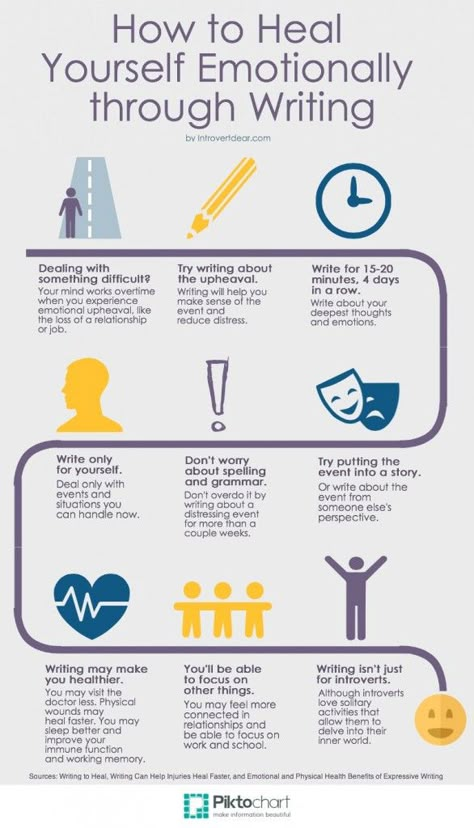 Any attempt to control them is self-deception as well as an illusion. People will either resist our efforts or redouble their efforts to prove that we cannot control them.
Any attempt to control them is self-deception as well as an illusion. People will either resist our efforts or redouble their efforts to prove that we cannot control them.
And this is the truth. The only person you have the right to control is you. Step back. Back off. Take control of yourself and your responsibilities.
Free others by letting them be who they are. By doing this, you will free yourself.
4. Stop being a victim
The words “rescue” and “protect” mean exactly what they sound like. We save people from responsibility. We take care of their duties instead of them. And then we get mad at them for what we did. And then we feel used and feel sorry for ourselves. Here it is, this pattern, this infinite triangle. We moan: “Why? Why does this always happen to me? Another person trampled on us, wiped his feet on us. We wonder: will we always be the victims? Probably yes - if we do not stop saving and patronizing.
5.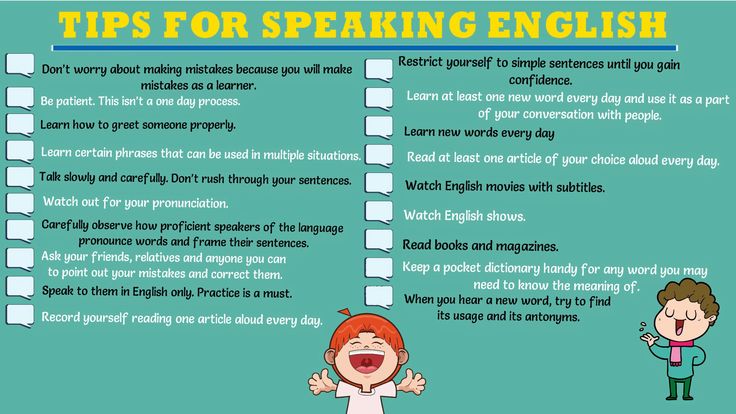 Be independent
Be independent
Some women are afraid to be alone. But unlike Siamese twins, we can live without any single human being. Stop looking for happiness in other people. Our source of happiness and prosperity is not in others; he is within us.
6. Live your own life
The surest way to drive yourself crazy is to get involved in other people's business, and the fastest way to become mentally healthy and happy is to mind your own business.
7. Love Yourself
As codependents, we often dislike ourselves to the point where we become convinced that taking ourselves into account is wrong. We need to be kind to ourselves. How can we expect to take good care of ourselves if we hate ourselves? Out of our self-esteem will grow acts of kindness and mercy, not selfishness.
Just keep doing what you have to do. Everything will improve. And don't stop taking care of yourself, no matter what happens.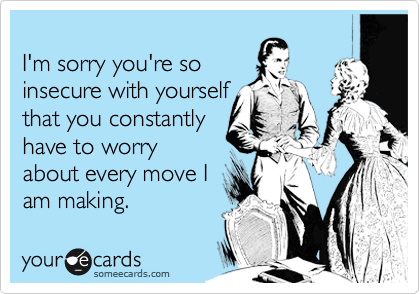
8. Learn the art of acceptance
Acceptance means that we acknowledge and accept our circumstances, including ourselves and the people in our lives, as we are and as they are. It cannot be said that this happens without kicks and yells.
We accept through five stages.
-
Negative . The first stage is denial. It is a state of shock, numbness, panic, and a general refusal to accept or acknowledge reality.
-
Anger . Once we stop denying the loss, we move on to the next stage, anger. Depending on the nature of the loss, we may be a little annoyed, angry, or in convulsions of soul-shattering rage.
-
Trade . After calming down, we try to make a deal with life, with ourselves, with another person or God. If we do this and that, or if someone else does this and that, then we don't have to suffer the loss.
-
Depression .
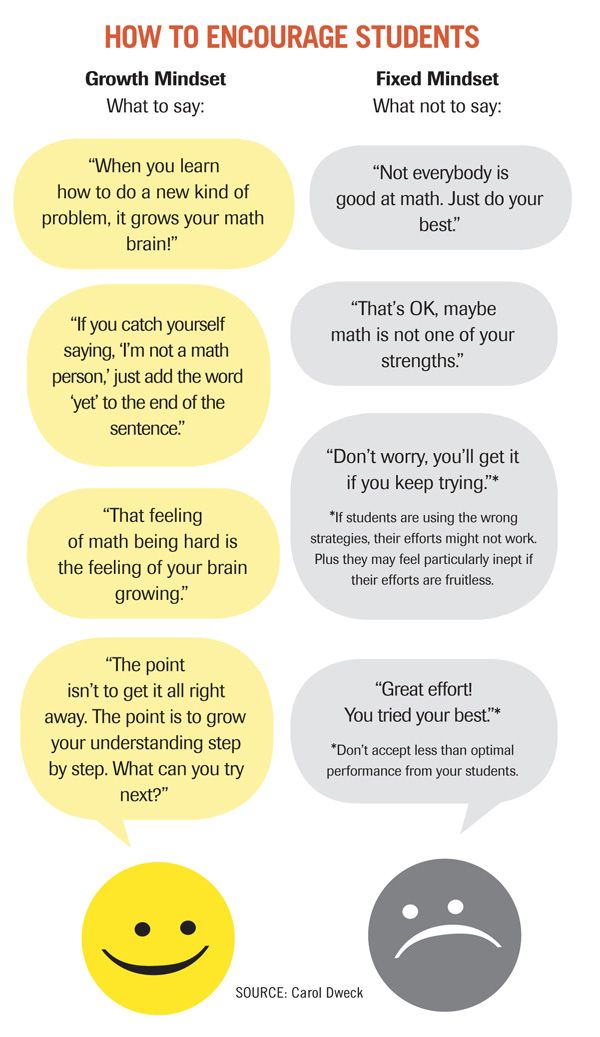 When we see that nothing has worked out with the deal, when we are finally no longer able to fight anymore, holding reality at a distance, we become sad, sometimes terribly depressed. It's crying time and it hurts.
When we see that nothing has worked out with the deal, when we are finally no longer able to fight anymore, holding reality at a distance, we become sad, sometimes terribly depressed. It's crying time and it hurts. -
Accept . That's all. After we have closed our eyes, kicked, yelled, tried to negotiate, and finally felt the pain, we come to acceptance. We accepted our loss, no matter how small or big.
9. Awaken your feelings
Repressed feelings block our energy. Another problem with repressed feelings is that they don't go away. What is locked inside sometimes becomes too big and too powerful. By releasing trapped feelings, we reduce them.
10. Don't be afraid to be angry
Suppressed anger, like any other repressed emotion, creates problems. Our angry feelings may one day break like an avalanche. We can lose control and let go of the reins, indulging in hostile, spitting, yelling, dish-smashing rage.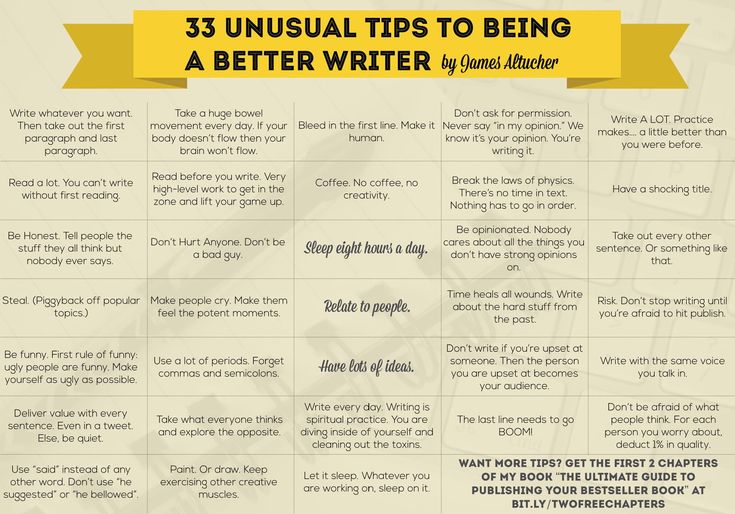
There are many things in life besides anger. But it's okay to feel angry when we need it.
11. Learn to make decisions
We may have lost faith in our ability to think and think logically for a variety of reasons. Believing someone else's lies, lying to ourselves, stress, low self-esteem, and a full array of repressed emotions can cloud our ability to think. We are lost. But that doesn't mean we can't think.
Make decisions. Form opinions. Express them. Create! Think carefully, but don't worry or get hung up. You don't have to let others make decisions for you.
12. Set your own goals
Goals are fun. They generate interest and enthusiasm for life. They make life amazing. Fix your goals on paper. Do what you can, day by day. Cross off goals you have already achieved. Be patient.
Photo: Getty Images
Marie Claire Editorial
How to stop overthinking yourself: 10 tips from Dale Carnegie's book
Contents of the article
Excitement and anxiety accompany us everywhere: at home and at work, on the bus and in the store, in line and in traffic jams. There is practically no person who does not face excitement. But some people can pull themselves together and survive an unpleasant moment, while others begin to wind themselves up even more, turning simple anxiety into chronic stress. We've summarized the tips from psychologist Dale Carnegie in How to Stop Worrying and Start Living? to change your perspective and reduce stress.
There is practically no person who does not face excitement. But some people can pull themselves together and survive an unpleasant moment, while others begin to wind themselves up even more, turning simple anxiety into chronic stress. We've summarized the tips from psychologist Dale Carnegie in How to Stop Worrying and Start Living? to change your perspective and reduce stress.
Tip 1. Distinguish between the past and the present
To stop overthinking yourself and worrying about problems that may happen in the future, you need to live in the present. Dale Carnegie proposes to mentally install an "iron curtain" that will delimit the past and the future, preventing a person from regretting old mistakes once again or thinking about tomorrow's difficulties.
Advice 2. Answer the Questions
At the height of your panic attack, ask yourself three questions from Willis Carrier's magical formula from Dale Carnegie's book.
- What is the worst thing that can happen in this situation?
- How can this problem be solved?
- Will I be able to cope with these difficulties?
If you honestly answer these questions for yourself, you will understand that even in the worst case scenario, you will be able to cope with trouble.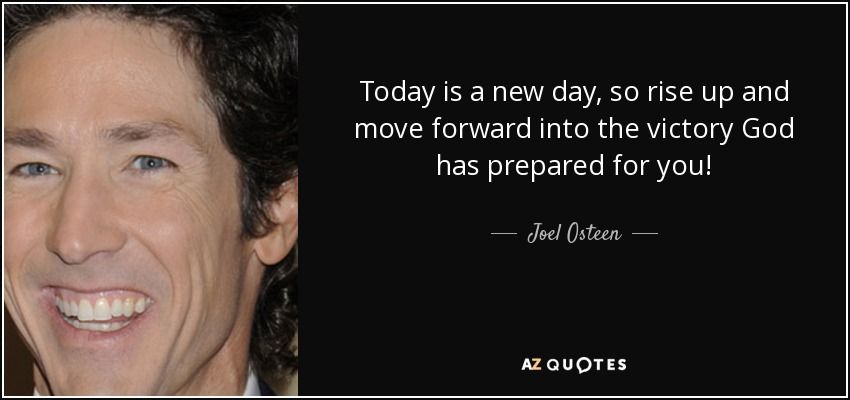
Tip 3. Think about the harmful effects of stress
In times of stress, you must constantly remember the harm that anxiety can do to your body. The author of the book cites the sad fact that business people who live in chronic stress die early. Therefore, it is important to take care of yourself and stay calm.
Tip 4. Think positively
Cheerful thoughts can reduce anxiety and calm down quickly. To do this, you need to develop positive thinking in yourself, try to maintain a good mood and look at life with a smile.
Advice 5. Start acting
When a person is inactive, bad thoughts begin to creep into his head. The best way to get rid of them is to keep yourself busy. So the brain will switch to action, and psychological stress will decrease.
Tip 6. Get rid of the habit of being nervous
Surely you have met people who, for any reason, begin to worry. For them, anxiety for no reason has already become a habit, which is still better to get rid of.